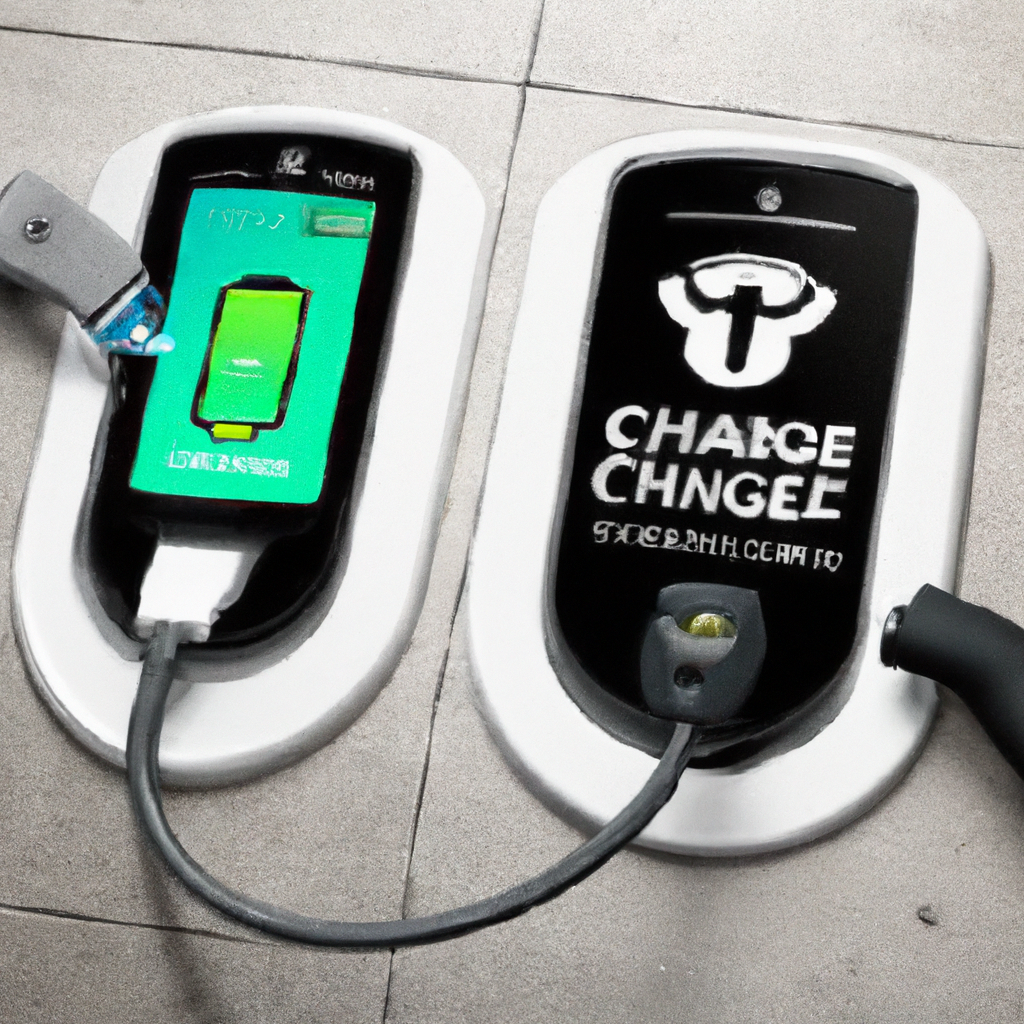What Are The Considerations For EV Charging Stations In Residential Condominiums In Malaysia?
October 25, 2023 | by Jacob Kang

Curious about the considerations for EV charging stations in residential condominiums in Malaysia? Look no further! In this article, we’ll be diving into the important factors that need to be considered when installing these stations in residential condo complexes. From the practicality of location and accessibility to the potential challenges of infrastructure and electrical capacity, we’ll cover it all. So, if you’re an EV enthusiast or a residential condo owner in Malaysia, grab a cup of coffee and get ready to learn more about how to make EV charging stations a convenient reality in your condo community.
Considerations for EV Charging Stations in Residential Condominiums in Malaysia
With the rise of electric vehicles (EVs) in Malaysia, it is crucial for residential condominiums to consider installing EV charging stations. This article will delve into the various factors that need to be taken into account when setting up these charging facilities in order to provide a reliable and accessible charging experience for residents.

Location
Availability of parking space
One of the first considerations when establishing EV charging stations in residential condominiums is the availability of parking space. It is essential to designate specific parking spots for EV charging to ensure that these vehicles have convenient access to the charging infrastructure. By reserving parking spaces for EV charging, it eliminates the risk of non-electric vehicles occupying these spots and hindering the charging process.
Proximity to electrical supply
Another crucial factor to consider during the installation of EV charging stations is the proximity to an electrical supply. It is essential to have a reliable electrical source nearby to provide the necessary power for charging infrastructure. By ensuring a close proximity to the electrical supply, the efficiency and effectiveness of the charging process can be maximized.
Accessibility for residents
The accessibility of EV charging stations for residents is of utmost importance. The placement of charging equipment should be strategically located to provide easy access for EV owners within the condominium premises. Ideally, charging stations should be situated in easily accessible areas, such as near entrances or common parking areas, to minimize inconvenience for residents.
Infrastructure
Installation of charging equipment
The installation of the actual EV charging equipment is a crucial aspect of establishing EV charging stations in residential condominiums. It is important to select reliable charging equipment that is compatible with different EV models and has the capacity to accommodate multiple charging points. Additionally, ensuring that the charging equipment is user-friendly with clear instructions and safety features will enhance the overall charging experience.
Electrical capacity and wiring
Before setting up EV charging stations, residential condominiums need to assess their electrical capacity and wiring infrastructure. Depending on the number of charging stations planned and the expected charging demand, it may be necessary to upgrade the electrical capacity of the building. This may involve rewiring or increasing the electrical load to accommodate the charging stations effectively.
Safety precautions
Safety should be a top priority when establishing EV charging stations. Adequate safety precautions, such as proper electrical grounding, surge protection, and fire safety measures, should be in place to minimize the risk of accidents or damage to property. Condominiums must ensure that the charging infrastructure meets the necessary safety standards and complies with local regulations.

Cost
Initial investment
The initial investment required for installing EV charging stations in residential condominiums can vary depending on various factors, such as the number of charging points, the type of charging equipment, and any necessary electrical upgrades. It is essential to evaluate the costs involved, including the purchase and installation of charging equipment, as well as any associated infrastructure upgrades.
Operating expenses
In addition to the initial investment, it is necessary to consider the ongoing operating expenses of EV charging stations. These can include costs related to electricity consumption, maintenance and repairs, software management, and any fees associated with payment systems or connectivity. Assessing these expenses will help ensure the financial viability and sustainability of the charging infrastructure.
Revenue generation
Residential condominiums can also explore revenue generation opportunities through EV charging stations. By implementing a payment system for EV charging, condominiums can generate income to offset the initial investment and operating expenses. It is essential to consider various pricing models and options to attract EV owners while maintaining a fair and competitive charging tariff.
Regulations and Permits
Compliance with local laws
To install EV charging stations in residential condominiums, compliance with local laws and regulations is essential. It is crucial to understand the specific requirements and guidelines set by relevant authorities regarding the installation and operation of EV charging infrastructure. Compliance ensures the legality and safety of the charging stations, providing peace of mind for both the condominium management and residents.
Obtaining necessary permits
In addition to compliance, obtaining the necessary permits is a crucial step in setting up EV charging stations. This may involve obtaining approval from local authorities or relevant regulatory bodies. It is important to thoroughly understand the permit application process, including any documentation requirements, timelines, and associated costs, to ensure a smooth and hassle-free installation.
Liabilities and insurance
Residential condominiums must also consider the potential liabilities associated with EV charging stations. It is advisable to consult with legal experts to clearly define ownership and liability rights, ensuring that the responsibility for any accidents or damages related to the charging infrastructure is appropriately allocated. Additionally, it is essential to review and update insurance policies to cover any potential risks or incidents related to the charging stations.

Ownership and Management
Clarifying ownership rights
Determining ownership rights is a crucial consideration when implementing EV charging stations in residential condominiums. It is essential to clearly define the ownership structure and responsibilities related to the charging infrastructure. This includes identifying who owns the charging stations and associated equipment and who is responsible for maintenance, repairs, and the overall management of the charging facilities.
Responsibility for maintenance
Maintenance plays a critical role in ensuring the optimal performance and reliability of EV charging stations. Establishing a clear maintenance plan, including regular inspections, repairs, and software updates, is necessary to keep the charging infrastructure in good condition. Identifying the party responsible for maintenance, whether it be the condominium management, a third-party service provider, or a dedicated maintenance team, is essential for the smooth operation of the charging stations.
Management arrangements
Efficient management arrangements are necessary for the successful operation of EV charging stations in residential condominiums. This includes establishing processes for monitoring usage, handling reservations, addressing issues or complaints, and providing customer support. Condominium management can consider outsourcing these management tasks to a specialized EV charging service provider or implementing in-house management systems to ensure a seamless user experience.
User Experience
Charging speed and convenience
A positive user experience is crucial for the success of EV charging stations in residential condominiums. Charging speed and convenience play a significant role in enhancing the user experience. By selecting fast-charging equipment and strategically locating charging points, EV owners can expect quicker charging times and reduced wait times. Additionally, convenient features such as designated parking spaces and clear signage will further enhance the overall charging experience.
Payment systems and accessibility
Ensuring user-friendly payment systems is essential for the convenience of EV owners. Implementing multiple payment options, such as RFID cards, mobile applications, or credit card payments, provides flexibility and accessibility. Condominiums can collaborate with payment service providers to offer secure and seamless payment processes, thus enhancing the overall user experience.
Integration with smart home technology
Integrating EV charging stations with smart home technology can greatly enhance the user experience. Features such as remote monitoring and control, scheduling charging sessions, and receiving notifications or alerts through mobile applications create a convenient and connected charging experience. Residential condominiums can explore partnerships with smart home technology providers to integrate these functionalities into their EV charging infrastructure.

Environmental Impact
Reduction in carbon emissions
One of the primary benefits of EV charging stations is the reduction in carbon emissions from transportation. By promoting the adoption of electric vehicles, residential condominiums can contribute to a greener and more sustainable environment. EV charging stations encourage residents to shift from conventional gasoline-powered vehicles to electric ones, thereby reducing greenhouse gas emissions and air pollution.
Promoting sustainable transportation
The establishment of EV charging stations in residential condominiums promotes sustainable transportation practices. By providing convenient access to charging infrastructure, condominiums encourage residents to choose electric vehicles as their mode of transportation. This shift not only reduces reliance on fossil fuels but also encourages the use of public transport and shared mobility options, further enhancing sustainable travel practices.
Energy efficiency considerations
When installing EV charging stations, energy efficiency considerations are essential. Condominiums can explore the use of renewable energy sources, such as solar panels, to power the charging infrastructure. This ensures that the electricity used for charging comes from clean sources, minimizing the environmental impact. Additionally, implementing energy management systems and smart charging algorithms can optimize the charging process and reduce energy consumption.
Future Expansion and Scalability
Planning for future demand
Considering future demand is crucial when setting up EV charging stations in residential condominiums. It is important to assess the growth of electric vehicle adoption in the area and plan for future expansion accordingly. This may involve considering additional charging points, increasing electrical capacity, or implementing scalable infrastructure to accommodate the anticipated increase in EV ownership.
Adding more charging points
As the number of electric vehicles grows, the demand for charging infrastructure will also increase. Residential condominiums should have the flexibility to add more charging points as needed. Assessing the available space and electrical capacity during the initial installation phase can help determine the potential for expansion and identify areas where additional charging points can be installed in the future.
Upgrading infrastructure
To ensure the scalability of EV charging stations in residential condominiums, it is essential to plan for infrastructure upgrades. This may involve upgrading electrical capacity, implementing advanced charging technologies, or improving the overall charging infrastructure based on emerging industry standards and advancements. By incorporating flexibility into the initial infrastructure design, condominiums can minimize future disruption and effectively adapt to changing technology and regulations.

Collaboration with Stakeholders
Engaging with residents and management
Effective communication and engagement with residents and condominium management are crucial in the successful implementation of EV charging stations. Conducting surveys, hosting informational sessions, and seeking feedback from residents can help gauge the level of interest and address any concerns or misconceptions related to EV charging infrastructure. Additionally, involving the condominium management in the decision-making process ensures a collaborative approach and fosters a sense of ownership among all stakeholders.
Cooperation with local authorities
Collaboration with local authorities is essential when establishing EV charging stations in residential condominiums. It is important to engage with relevant agencies, such as local councils or utility companies, to ensure compliance with regulations and obtain necessary approvals. Regular communication and cooperation with local authorities can also provide valuable insights and support in terms of infrastructure planning, incentives, or policy developments related to EV charging.
Partnerships with utility companies
Forming partnerships with utility companies can be beneficial in several ways. Utility companies can offer expertise in electrical infrastructure design and installation, as well as guidance on energy management and optimization. Collaborating with utility companies may also open up opportunities for innovative pricing models, customized energy solutions, and potential incentives for both the condominium and its residents. These partnerships can ultimately enhance the overall efficiency and sustainability of EV charging in residential condominiums.
Promotion and Education
Raising awareness among residents
Promoting and raising awareness about EV charging stations is crucial to encourage adoption among residents. Residential condominiums can organize awareness campaigns, distribute informative materials, and leverage various communication channels to educate residents about the benefits of electric vehicles and the charging infrastructure available within the condominium premises. By fostering a culture of sustainability and environmental consciousness, condominiums can inspire residents to embrace EVs and the associated charging facilities.
Educating users about EV charging
Apart from general awareness, educating users about EV charging itself is vital. It is important to provide clear instructions or guidelines on how to use the charging infrastructure effectively and safely. This includes information on proper connector usage, charging etiquette, and necessary safety precautions. By conducting training sessions and providing user manuals, residential condominiums can ensure that all residents understand the charging process and can utilize the facilities confidently.
Incentives and promotions
Implementing incentives and promotions can further encourage the use of EV charging stations in residential condominiums. Offering discounted or preferential parking rates for EV owners, providing loyalty or referral programs, or collaborating with local businesses to offer exclusive benefits can incentivize EV adoption and usage. These promotions can also help condominiums differentiate themselves and attract residents who prioritize sustainable transportation options.
In conclusion, setting up EV charging stations in residential condominiums requires careful consideration of various factors. From location and infrastructure to cost and regulations, each aspect plays a crucial role in providing a reliable and accessible charging experience for residents. By addressing these considerations and promoting sustainability, residential condominiums can play a significant role in promoting the use of electric vehicles and contributing to a greener future.
RELATED POSTS
View all


